Burkina Faso
Political parties, social and religious groups and representatives of the security forces launched talks on Friday to chart the next phase in Burkina Faso's future after the country's latest coup.
The gathering of some 300 people in the capital Ouagadougou is taking place two weeks after the jihadist-torn Sahel state was rocked by its second military takeover in less than nine months.
A 34-year-old captain, Ibrahim Traore, leading disgruntled junior officers, forced out Lieutenant-Colonel Paul-Henri Sandaogo Damiba.
Damiba had seized power only in January, toppling Burkina's last elected president, Roch Marc Christian Kabore.
The national forum is due to appoint a transitional president to rule before power is eventually returned to civilians.
Supporters of Traore are clamouring for him to be that man, although he has said he does not want the job.
Several hundreds demonstrated Friday in the capital to call for Traore to be appointed president.
"We want captain Traore or nothing," demonstrator Sayouba Ouedrapogo told AFP near the conference centre where the talks opened.
Traore did not attend the forum but junta member captain Marcel Medah read out a message from him urging national unity and peace.
"We must set aside our differences ... and write a new page full of hope," the message said.
Traore called for "clear directions for the construction of a strong and resilient nation, a nation that can establish peace, security, and sustainable development."
The forum is expected to adopt a charter for which a draft seen by AFP states that the presidential transition mandate will end with the inauguration of a new president after elections in July 2024.
Troubled country
One of the world's poorest nations, Burkina Faso has a long history of coups since independence from France in 1960.
The latest are rooted in unrest within army ranks over the jihadist insurgency that swept in from neighbouring Mali in 2015.
Thousands of people have been killed and nearly two million have been displaced and more than a third of the country lies outside government control.
Traore has said Burkina will uphold a pledge that Damiba made for a return to civilian government by July 2024 at the latest.
But like Damiba before him, Traore defended the coup on the grounds that the authorities were failing to do enough against the jihadists.
Damiba fled to neighbouring Benin on October 2, after a weekend of violent protests that also targeted the French embassy and saw demonstrators raise Russian flags.




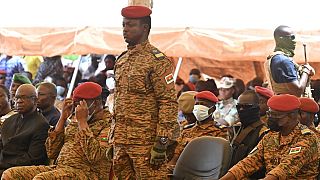
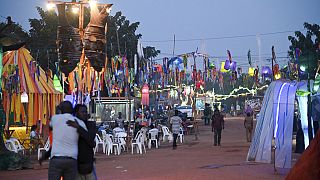
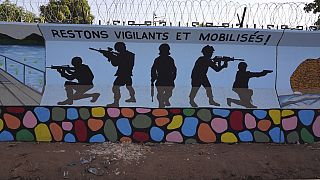
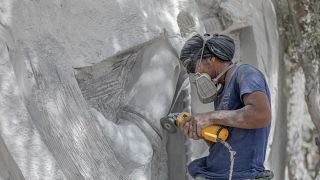


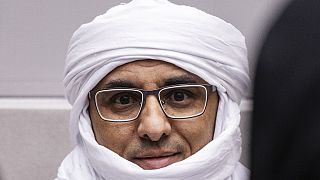
01:42
Niger: Conference in solidarity with the Alliance of Sahel States
01:56
Niger: Thousands march in Niamey to denounce “destabilization plots”
Go to video
Algeria, Mali dissension laid bare after UN speech
Go to video
Mali, Niger, Burkina investigate a French journalist over jihadi analysis
01:31
UNGA: Senegalese leader calls out Security Council's “inertia” in face of destabilization of Sahel
00:58
Sahel: Community radio stations, media freedom group sound alarm on violence against journalists